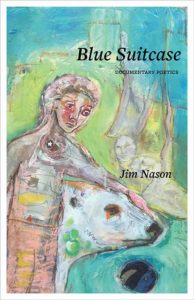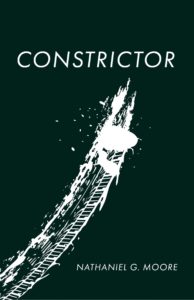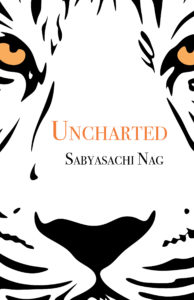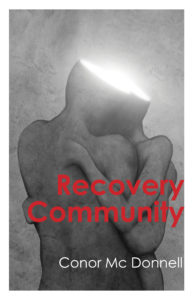b y Amy Lavender Harris
During the five years it has taken to research and write the Imagining Toronto book (forthcoming, finally, in the fall of 2010), I have made an effort to read almost every Toronto-related literary work ever published. In the process I have read poetry published in broadsheets dating to Mackenzie’s abortive 1837 rebellion, long-forgotten 19th-century novels set in Rosedale, a futuristic work of science-fiction imagining Toronto in 1928 and a Harlequin romance featuring a lurid sex scene on the floor of the mayor’s office. I’ve read the Toronto canon—Atwood, Ondaatje, Michaels, Garner and Callaghan—as well as dozens of authors— among them Gwendolyn MacEwen, Catherine Bush, Rabindranath Maharaj and Dionne Brand—whose work should also be required reading for anyone interested in the city’s literature. I have read and written about nearly all of Toronto’s 170 or so neighbourhoods and most of its civic and natural spaces, as well as its diverse array of socioeconomic, cultural and sexual communities. While not managing to read quite everything ever set in Toronto, I have, after having read well over a thousand literary works, seen far more than a representative sample of the city’s prodigious literary output.
Only one book has defeated me.
Josef Skvorecky’s The Engineer of Human Souls, first published in Czech in 1977 and translated into English in 1984, is my literary Leviathan. Despite its many deserved accolades—it won the Governor General’s Award in 1984 and the Toronto Book Award in 1985, and Skvorecky himself has received many high honours, among them a Nobel Prize nomination and a Guggenheim Fellowship—the book has stymied me at every turn of the page. I have simply been unable to get through it.
Skvorecky’s novel is considered a contemporary classic of international scope, a scathing indictment of state repression and a brilliant satire of Canadian political naiveté. Milan Kundera described it as “magnificent” and called it “a magnum opus in all respects.”
And I? Wearily, doggedly, I’ve gotten as far as page 83.
Like most people, I have a few literary prejudices. Epic novels, particularly those dealing with political matters on a grand scale, bore me. Novels, even great ones, written by older men extolling their youthful heroism and sexual prowess, strike me as tedious. Moreover, because my days are spent dealing with edits and engaging with my little daughter, I have time to read now only at night. And every night I open Skvorecky’s novel and plod through another page or two before drifting off—but only for a moment before the book (a 600-page opus weighing in at five or six pounds) smacks me sharply on the nose. This cycle repeats two or three times, until I heave the book over the side of the bed and give up until the next night.
But I keep reading, in large part because Skvorecky examines one aspect of Canadian culture that remains mainly unacknowledged. In the opening pages of the novel he describes Canada as “this country of cities with no past” and adds, “I feel wonderful. I feel utterly and dangerously wonderful in this wilderness land.” Skvorecky’s protagonist is a survivor of the totalitarian regime in Czechoslovakia, and in his view one of the most compelling, if exasperating, virtues of Toronto is its amnesia, its failure to remember or take seriously the wounds of history. A professor at the “Edenvale” campus of the University of Toronto, Skvorecky’s protagonist attempts, with limited success, to cut through his students’ superficiality by pointing out analyses of totalitarianism and truth in prominent, primarily American, works of literature.
Skvorecky’s depictions of Toronto have a farcical quality. Czech émigrés like himself are dogged by secret agents hoping to gather incriminating evidence to take back to the Soviets, while Toronto whirls around them, a glittering, snowy wonderland of restaurants, booze, gossip and sexual dalliance. Haunted by history, Skvorecky’s protagonist is unable to let go of his past and, like many Torontonians, drifts through two cities simultaneously: present-day Toronto, where he lives in comfort and security, and the remembered, repressive Prague of his vanished youth.
In his famous poem “Civil Elegies,” Dennis Lee laments Torontonians’ ignorance of their past, writing that “in the city I long for men complete their origins” before deploring “that not / one countryman has learned, that / men and women live that / they may make that / life worth dying.” George Jonas echoes and answers Lee’s poem in “City Elegy,” writing, “yes: it is not / skyscrapers subways green belts / theatres neighbourhoods children / but war that forges a city and no city / lives that has not lived through war.”
This is one reason I continue to plug away at Skvorecky. I was born in Toronto, in a Canada my ancestors lived in long before it was a country. I have not lived through war, but I try to live by understanding the origins and consequences of conflict. My husband, an academic who was born in Soviet Romania and grew up in the Middle East before coming to this country in his teens, writes that “being Canadian means having nothing to declare.” He means this both critically and admiringly, finding not only emptiness but also beauty in this untouched city, this safe harbour for so many people who have landed here fleeing war.
For most people Toronto is a safe city, a city where, as Skvorecky writes, “one feels that sense of ease which comes from no longer having to put off one’s dreams until some improbable future.” Toronto is a city of the present, a city that celebrates possibility. It is a city largely without memory, and if this means we can live together as neighbours without, for the most part, coming to blows, it means also we risk forgetting that peace and freedom are things we must guard and be willing to stand up for. We need writers like Skvorecky, and Jones and Lee, to jar us out of our complacency when we are tempted to drift off.
Amy Lavender Harris is the author of Imagining Toronto, forthcoming this fall from Mansfield Press.




























